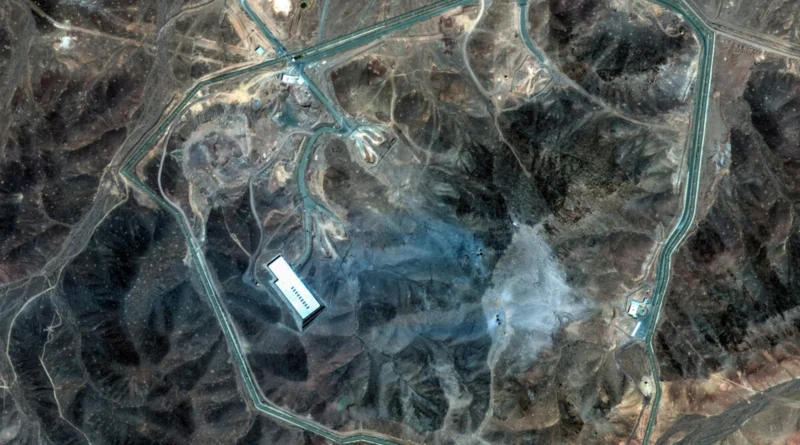Iran Halts Cooperation with IAEA Amidst Ongoing Aerial Conflict
On July 3, President of Iran, Masoud Pezeshkian, directed the nation to halt its collaboration with the International Atomic Energy Agency (IAEA), following an airstrike on three significant Iranian nuclear facilities by the United States. This occurred amidst an ongoing aerial conflict between Israel and Iran. The Islamic Republic’s Foreign Ministry has indicated that the forthcoming discussions with the IAEA will be technically challenging and complex.
These discussions mark the first official communications with the IAEA since Iran terminated its connection with the organisation the previous month. This decision was in response to a devastating 12-day air offensive in June by Israel and the US, during which primary Iranian nuclear establishments were targeted and bombed.
On June 12, prior to the Israeli air raids over Iran that intensfied the conflict, the IAEA board concluded that Iran had failed to comply with its non-proliferation obligations. The IAEA, however, refrained from issuing an immediate statement concerning the visit undertaken by the agency’s Deputy Chief, which did not encompass any scheduled visits to the Iranian nuclear sites.
Esmail Baghaei, the spokesperson for the Iranian Foreign Ministry, hinted at a probable meeting with Foreign Minister Abbas Aragchi. Baghaei, however, indicated that it was too early to anticipate the outcomes of these discussions, given their technical and complex nature.
Baghaei expressed his dissatisfaction with the IAEA’s stand during the air strikes in June by Israel. His statements highlighted the surprise strikes on the ‘peaceful establishments’ of a country that was under the 24-hour surveillance of the IAEA. He criticized the Agency for not having a clear and practical response, and for neglecting to condemn the attacks as was expected.
Aragchi previously conveyed that future collaboration with the agency will now be reliant on the authorization by Iran’s paramount security authority – the Supreme National Security Council. This interaction is likely to be centred around establishing new cooperation guidelines between both parties.
The implications of this decision might restrict inspectors’ capabilities to monitor Tehran’s program that had been escalating uranium processing nearing weapons-grade levels. Simultaneously, President Pezeshkian reiterated on July 3, his order for the country to cease its engagement with the IAEA, post the US bombing of three vital Iranian nuclear sites.
This bombing was part of an air war led by Israel against Iran that resulted in nearly 1,100 casualties, amongst them many military chiefs. Iran retaliated with strikes that led to 28 deaths in Israel.
Iran has previously deployed limited IAEA inspections as leverage in negotiations with Western nations. However, it remains uncertain when discussions between Tehran and Washington about a possible agreement concerning its nuclear program will recommence.
US intelligence organisations and the IAEA had last confirmed the presence of an organized nuclear weapons program in Iran in 2003. However, it was later discovered that Tehran had been processing uranium up to 60% — a single, technical leap away from weapons-grade levels of 90%.
With the backdrop of these events, the discussions between the IAEA and Iran are taking center stage. The complexity of these dialogues, as mentioned by the foreign ministry, underscores the sensitivity of the situation and the high stakes involved for both parties.
Tensions are expected to rise given Iran’s decision to halt collaboration with the IAEA. This decision, made in the aftermath of an extensive air offensive, can significantly impact future interactions concerning nuclear policies amongst the involved nations.
Previous moments of crisis have seen Iran resort to limited IAEA inspections as a negotiation strategy with the West. Whether this approach will continue in the current scenario is as yet undetermined. The uncertainty surrounding negotiations with Washington further intensifies the situation.
The unexpected air attack on Iranian nuclear establishments that were under constant monitoring has presented a significant challenge to the IAEA. How the agency will react to this action, criticized heavily by the Iranian spokesperson, remains to be seen.
The disclosure that Tehran has been enriching uranium to 60% increases global apprehensions. Considering that processing to 90% equates to weapons-grade level, this revelation places considerable international pressure on these upcoming dialogues concerning nuclear policies.



